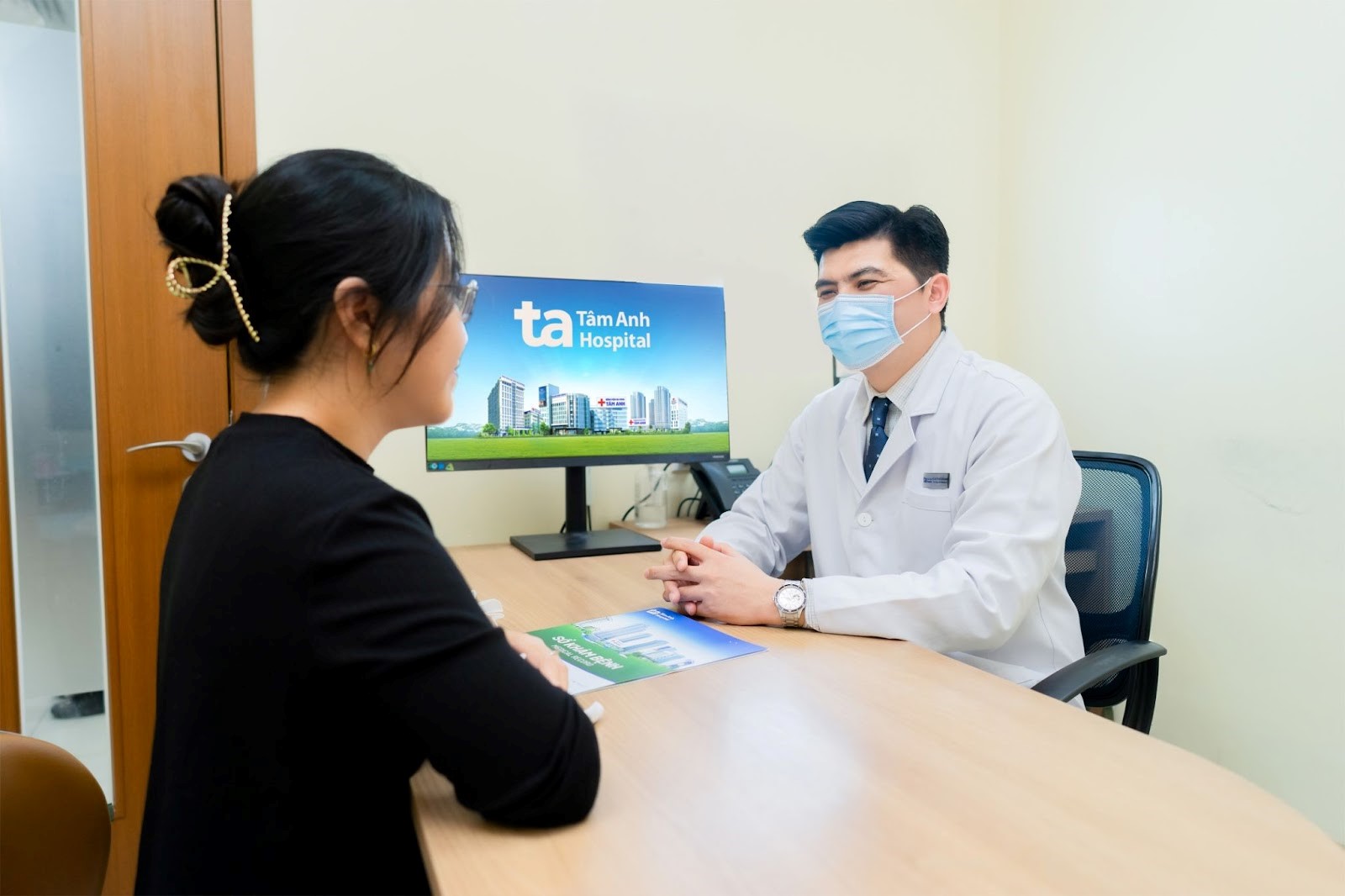Answer:
Breast tissue comprises various structures, including skin, fat, glandular tissue, and connective tissue. As the menstrual cycle approaches, rising hormone levels can cause breast tissue to swell and become tender, leading to pain.
Cyclical breast pain related to menstruation is not a sign of breast cancer. Hormonal changes leading up to menstruation can alter breast tissue, creating a lumpy or uneven texture upon palpation. This pain typically affects both breasts, causing tightness and swelling, sometimes severe enough to disrupt daily activities. The pain usually subsides soon after the period ends, though some may experience lingering discomfort for several days. While these lumps may feel like tumors, they generally disappear after menstruation.
 |
Doctor Manh consults with a patient. Photo illustration: Tam Anh General Hospital |
Doctor Manh consults with a patient. Photo illustration: Tam Anh General Hospital
Numerous factors can cause chest pain, including injuries, medications for gastritis, heart conditions, and insomnia. Contraceptives, ovulation-stimulating drugs used in fertility treatments, and hormone replacement therapy for menopause can also cause breast pain due to hormonal fluctuations.
While breast cancer can cause breast pain, it's often accompanied by other symptoms that appear before the pain, such as a hard lump with irregular shape and size, jagged edges, and limited mobility. Additional warning signs of breast cancer include thickened skin around the breast or in the other breast, scaly or dimpled breast skin, nipple retraction or discharge, and inverted nipples.
If breast pain persists after your period, consult a specialist in Breast and Head and Neck Surgery for an examination to assess whether the condition is benign or malignant, and to determine appropriate monitoring.
To alleviate breast pain during menstruation, women should wear well-fitting bras, apply cool compresses, reduce caffeine intake, avoid staying up late, and limit strenuous activities. A low-fat diet, meditation, and light exercise can promote relaxation and ease discomfort.
Pham Tuan Manh, M.D., Ph.D.
Breast and Head and Neck Surgery Department
Tam Anh General Hospital, TP HCM
| Readers can submit questions about cancer here for doctors to answer. |












